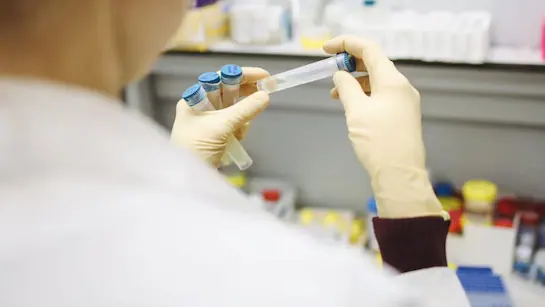Context:
Russia has recently developed an mRNA-based cancer vaccine, shown to suppress tumour development and metastasis in pre-clinical trials, and will be available free to patients from early 2025.
Key Points about the Vaccine
The vaccine can be personalised with the help of artificial intelligence (AI) to detect genetic mutations in less than an hour.
The vaccine is based on the genetic analysis of each person’s tumour, identifying specific mutations known as neoantigens.

This vaccine works on the principle of using neoantigens to prompt the immune system to attack cancer cells, similar to how vaccines work against infectious diseases.
These neoantigens will be used to create an individualised vaccine that trains the immune system to recognise and target cancer cells.
- Neoantigens are proteins that are found only on cancerous cells, which the body’s immune system can be trained to recognise, thereby allowing the body’s own immune system to fight off cancer.
Viability of the vaccine:
Experts are cautious about the Russian vaccine due to a lack of detailed data and the challenges of obtaining reliable research data from Russian (and Chinese) institutes.
- Previous Russian vaccine trials (such as for Sputnik V for the COVID-19 virus) raised concerns about data integrity, including small test groups and inconsistent patterns.
However, cancer vaccines are not one-size-fits-all and tend to be effective only for specific types of cancer or cancers with specific mutations.
The cost-benefit ratio of vaccines and immunotherapies is crucial for their success, and they must be incorporated into government healthcare programs for broader accessibility.
Other Global Cancer Vaccines Development Project:
- Various cancer vaccine research programs are underway globally, with notable work being done by Memorial Sloan Kettering (MSK) on pancreatic cancer.
- The U.S. Food and Drug Administration approved the cancer vaccine named Sipuleucel-T, which targets prostate cancer. However, its effectiveness is limited, extending survival by only a few months.
- Despite various ongoing efforts, no major cancer vaccine breakthroughs have been achieved globally.
- Vaccines for preventing infections like HPV (Human Papilloma Virus) in case of cervical cancer and chronic Hepatitis B are already effective in reducing related types of cancer, highlighting the potential of vaccination in cancer prevention.

